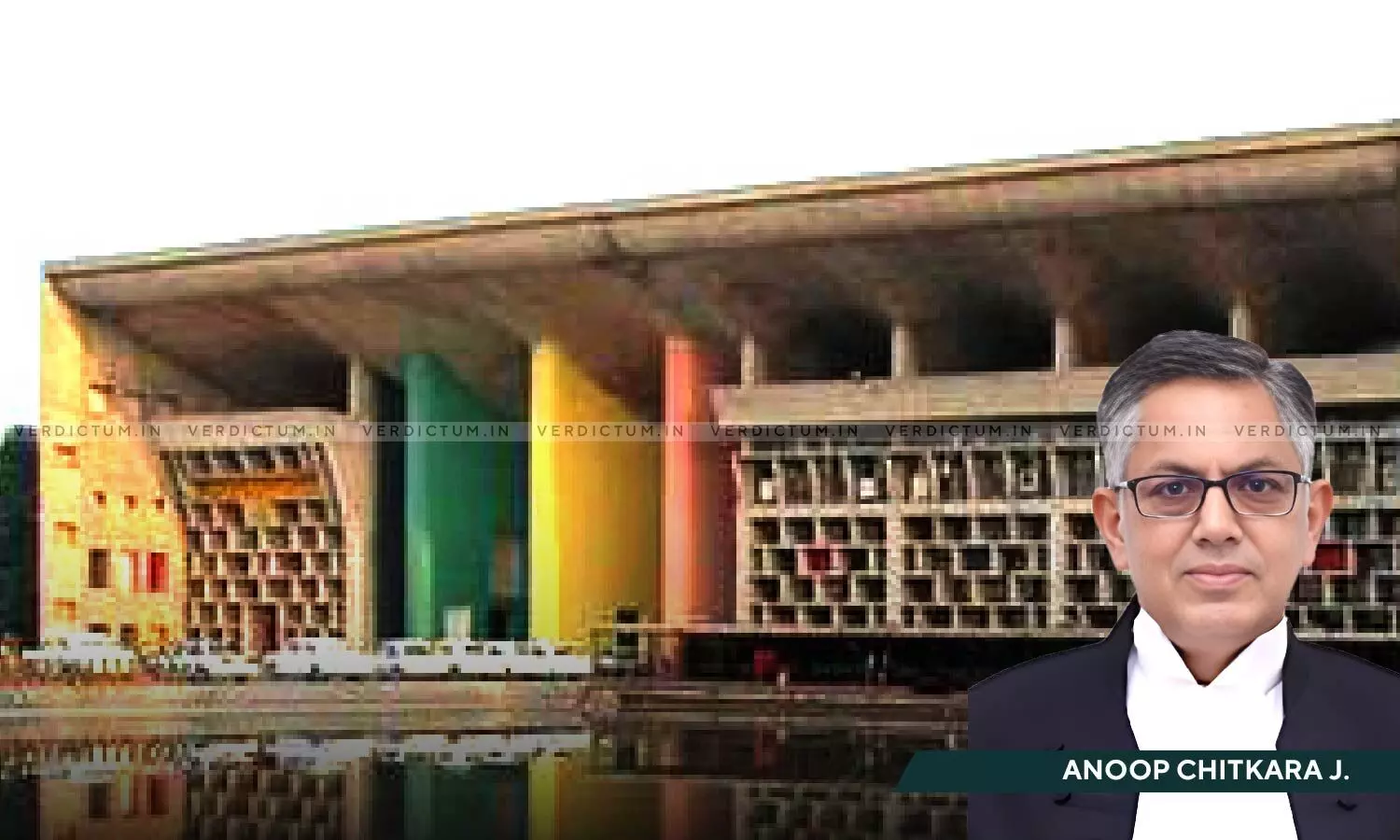
Evidence Of Police If Found Trustworthy & Reliable Can Form Basis Of Conviction: Punjab & Haryana HC Upholds NDPS Conviction
 |
|The Punjab and Haryana High Court observed that if the testimony of police officials is scrutinized meticulously and is deemed trustworthy and reliable, it can serve as a solid foundation for conviction.
The High Court also emphasized that the lack of independent witnesses from the locality to corroborate the evidence of the police officials does not diminish the credibility of the prosecution's case in any manner.
The court was dealing with a criminal appeal of 4 persons convicted under Section 15 of the Narcotics Drugs and Psychotropic Substances Act, 1985, [NDPS Act]
The Single Judge Bench of Justice Anoop Chitkara stated, "There can be no legal proposition that evidence of police officers, unless supported by independent witnesses, is unworthy of acceptance; there is no absolute command of law that the police officers cannot be cited as witnesses and their testimony should always be treated with suspicion. The presumption that a person acts honestly applies as much in favour of police personnel as of other persons and it is not a proper judicial approach to distrust and suspect them without good grounds."
The appellants were discovered to be engaged in the illicit trade of contraband. In 2002, following their apprehension by the police, a thorough inspection of their jeep revealed six bags containing 38.5 kilograms of poppy husk. Subsequently, they were sentenced to 10 years rigorous imprisonment.
The applicants before the High Court submitted that the statements of witnesses contained contradictions, casting doubt on the entire case. Additionally, it was asserted that the police hastily implicated the appellants without verifying the ownership of the Jeep or arresting its owner. They further contended that despite the search occurring in broad daylight with independent witnesses at hand, and the Deputy Superintendent of Police being available, the failure to involve a non-police official as an independent witness was questionable. Moreover, they emphasized the absence of any notice under Section 160 Cr.P.C. inviting individuals to participate as witnesses.
On the other hand, the Respondent State submitted that the police party attempted to involve independent witnesses, but none were willing to participate. Further, it was submitted that the statements of the remaining police officials carry sufficient evidentiary weight, and there is no legal provision stipulating that the absence of independent witnesses would either invalidate the trial or prejudice the accused. Additionally, they argued that no specific accusations of hostility were made against any police officials. Furthermore, with the presence of the Deputy Superintendent of Police, there was deemed to be no justification for false or incorrect implications.
Considering the submissions, the High Court noted that there is no legal principle stating that the testimony of police officers unless accompanied by independent witnesses, is inherently unreliable. The Court clarified that the law does not categorically mandate that the statements of police officers should always be viewed with suspicion.
"If in the course of scrutinising the evidence the court finds the evidence of the police officer as unreliable and untrustworthy, the court may disbelieve him but it should not do so solely on the presumption that a witness from the department of police should be viewed with distrust. Where the evidence of the police officials, after careful scrutiny, inspires confidence and is found to be trustworthy and reliable, it can form basis of conviction and the absence of some independent witness of the locality to lend corroboration to their evidence does not in any way affect the creditworthiness of the prosecution case; The court will have to appreciate the relevant evidence and will have to determine whether the evidence of the police officer was believable after taking due care and caution in evaluating their evidence", observed the Court in its Judgment.
The Court also stated, "It is settled law that the testimony of official witnesses cannot be rejected on the ground of non-corroboration by independent witness; it is desirable to examine independent witness, however, in the absence of any such witness, if the statements of police officers are reliable and when there is no animosity established against them by the accused, conviction based on their statement cannot be faulted with."
The court noted that, in the present case, although it could be inferred that the police intentionally did not involve any independent witnesses, the absence of such witnesses did not necessarily indicate that the police had planted the contraband on the accused. The Court further stated that it did not suggest an attempt by the police to absolve someone else by framing the accused. Moreover, the court held that the non-examination of independent witnesses was not prejudicial to the accused. The court emphasized that the statements of police officials should not be summarily discarded merely because of their official capacity; instead, their testimonies should be evaluated based on their ability to inspire confidence. In this particular trial, the court found that the evidence, considering the nature of suggestions presented to the witnesses during the defence and the consistent denial by all accused under Section 313 of the CrPC, was trustworthy and reliable.
The High Court accordingly dismissed the appeal.
Cause Title: Joginder Singh & Ors. v. State of Haryana [CRA-S-1472-SB-2002]